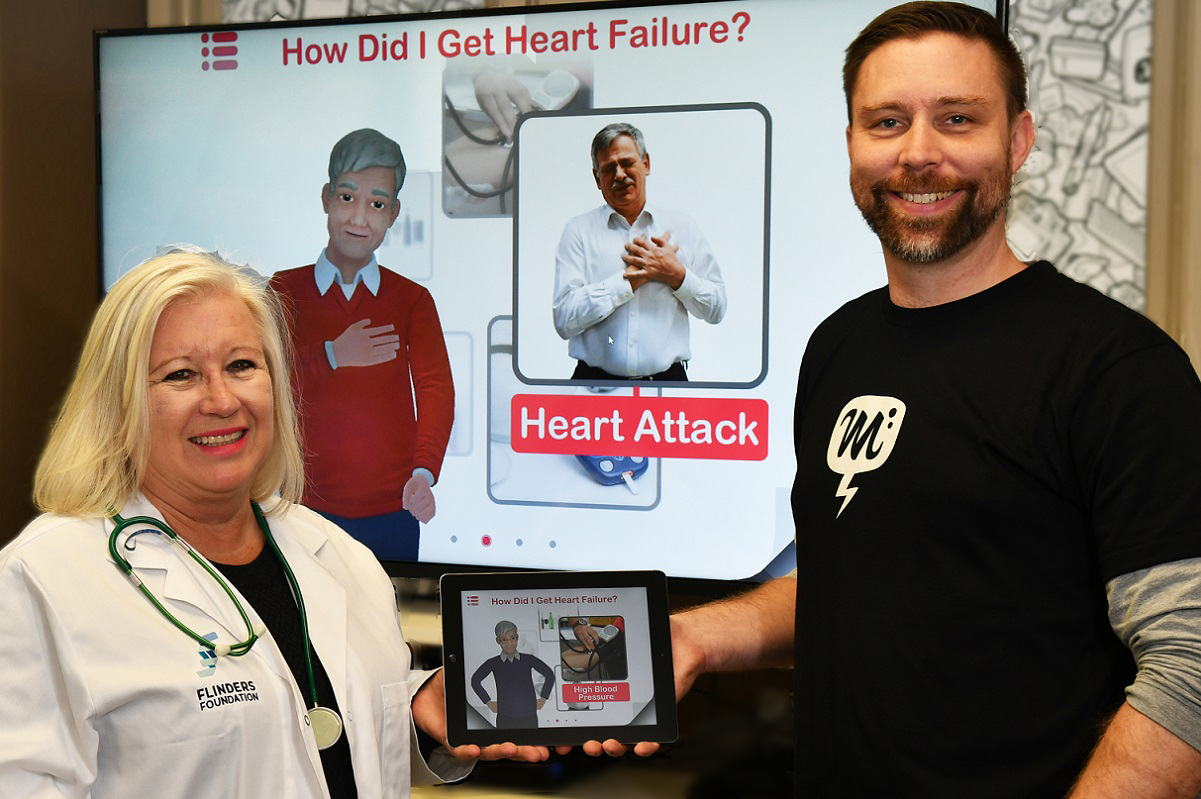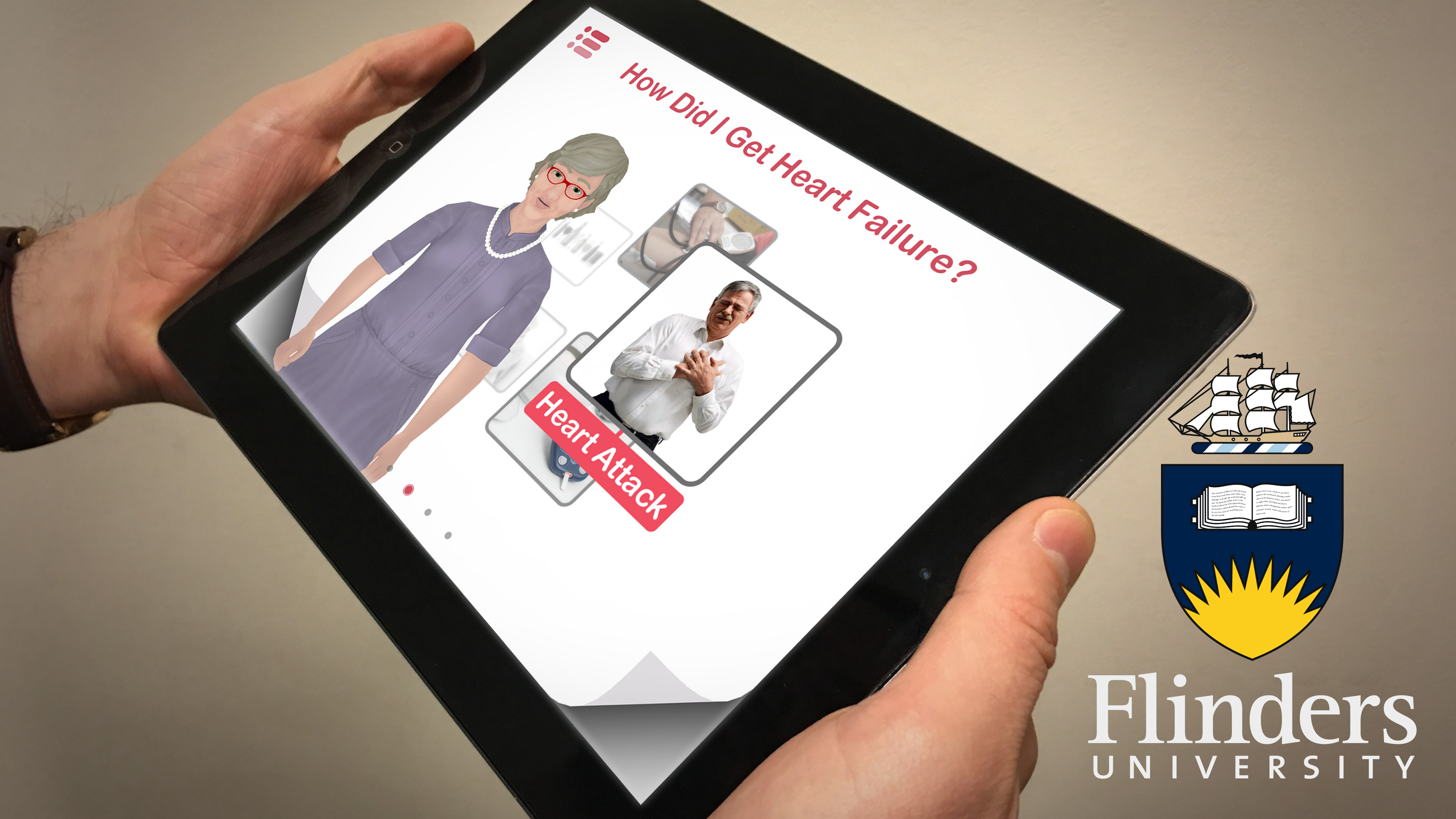
Gaming experts have partnered with Flinders University on a pioneering digital health app to help the half-a-million Australian adults living with heart failure – and millions of people worldwide – improve their quality of life and longevity.
Heart failure is a condition where the heart no longer pumps effectively. It is a leading cause of death affecting 38 million people worldwide, with multiple causes including heart attack, high blood pressure, diabetes, alcohol intake and cancer treatment.
There is no cure, however people are living longer with the condition and quality of life is heavily reliant on self-management.
“Heart failure patients need to take responsibility for their self-care to a large extent,” says Flinders University Professor Robyn Clark, a national Heart Foundation Fellow and member of the app creation team.
“Newly diagnosed patients often leave hospital with a multitude of brochures and reading suggestions however literacy is not always high in the community, English is not the first language for many people, and the use of medical terms can be overwhelming,” Professor Clark says.
“There is a lot of information to take in and incorporate into daily living.”
Turning to technology to overcome these barriers, Professor Clark and her team enlisted the expertise of game and digital content creator Monkeystack to develop ‘Fluid Watchers’ – a mobile device app framed on robust medical research and designed to engage people from all backgrounds and cultures, and influence their behaviour.
“In our experience, the best way for information to stick is to elicit some kind of emotional response from the audience,” says Justin Wight, Monkeystack company director.
“Our background is in animation and games for entertainment, and we’re finding that this skillset is transferable to so many industries – from arts and entertainment, to defence, construction and health. It’s the intersection between art, technology and science where there is real room for innovation and huge opportunities that can have meaningful impact for audiences.”
The international-award winning company works on diverse projects, at the moment including The Vault, an interactive story about the history of emotions that explores themes of emotional wellbeing and resilience; and Thin Ice VR, a world-first VR documentary about Sir Ernest Shackleton and his epic journey of survival in the Antarctic region, produced with Torrens University.
In the Fluid Watchers app, a customisable avatar – ‘Bob’ or ‘Mary’ – guides and quizzes the user as they progress through the app and build their game score. The digital platform enables ease of translation into multiple languages.
“What differentiates this from the 300000-odd health apps is its foundation in medical theory and the input of patients. They gave us great ideas and feedback, while the gaming experts provided the critical element of fun, which is often missing from medical communications, and taught us so much about engagement,” says Professor Clark.
The app’s name is coined from the importance of heart failure patients to manage and monitor their fluid levels.
It is hoped the app will be available to the community in 2020, coinciding with the commercialisation of Flinders’ ‘Cora’ app, which enlists a nurse avatar to guide and assist heart attack patients in self-care.
The Flinders University Fluid Watchers project was made possible by a Heart Foundation Future Leader Fellowship grant, an ARC Establishment Grant, a Tom Simpson Trust Fund and a Khon Kaen University scholarship in Thailand.


